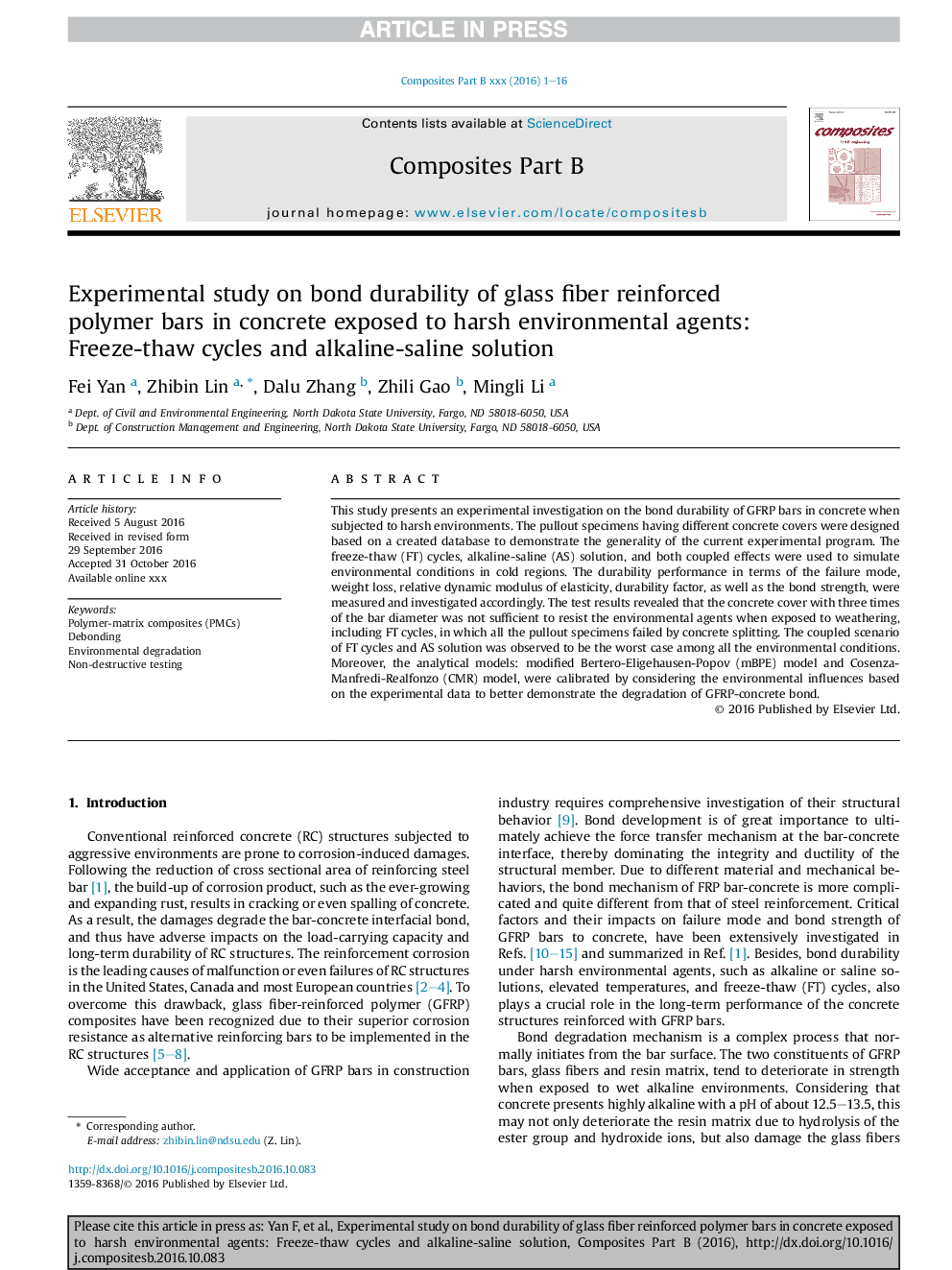| Article ID | Journal | Published Year | Pages | File Type |
|---|---|---|---|---|
| 5021494 | Composites Part B: Engineering | 2017 | 16 Pages |
Abstract
This study presents an experimental investigation on the bond durability of GFRP bars in concrete when subjected to harsh environments. The pullout specimens having different concrete covers were designed based on a created database to demonstrate the generality of the current experimental program. The freeze-thaw (FT) cycles, alkaline-saline (AS) solution, and both coupled effects were used to simulate environmental conditions in cold regions. The durability performance in terms of the failure mode, weight loss, relative dynamic modulus of elasticity, durability factor, as well as the bond strength, were measured and investigated accordingly. The test results revealed that the concrete cover with three times of the bar diameter was not sufficient to resist the environmental agents when exposed to weathering, including FT cycles, in which all the pullout specimens failed by concrete splitting. The coupled scenario of FT cycles and AS solution was observed to be the worst case among all the environmental conditions. Moreover, the analytical models: modified Bertero-Eligehausen-Popov (mBPE) model and Cosenza-Manfredi-Realfonzo (CMR) model, were calibrated by considering the environmental influences based on the experimental data to better demonstrate the degradation of GFRP-concrete bond.
Related Topics
Physical Sciences and Engineering
Engineering
Engineering (General)
Authors
Fei Yan, Zhibin Lin, Dalu Zhang, Zhili Gao, Mingli Li,
